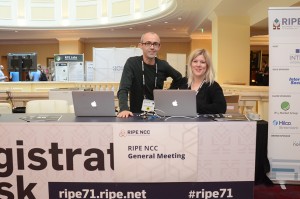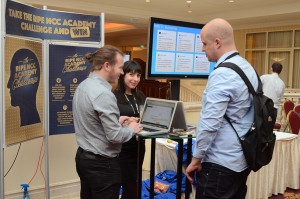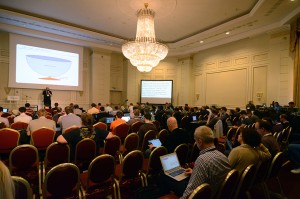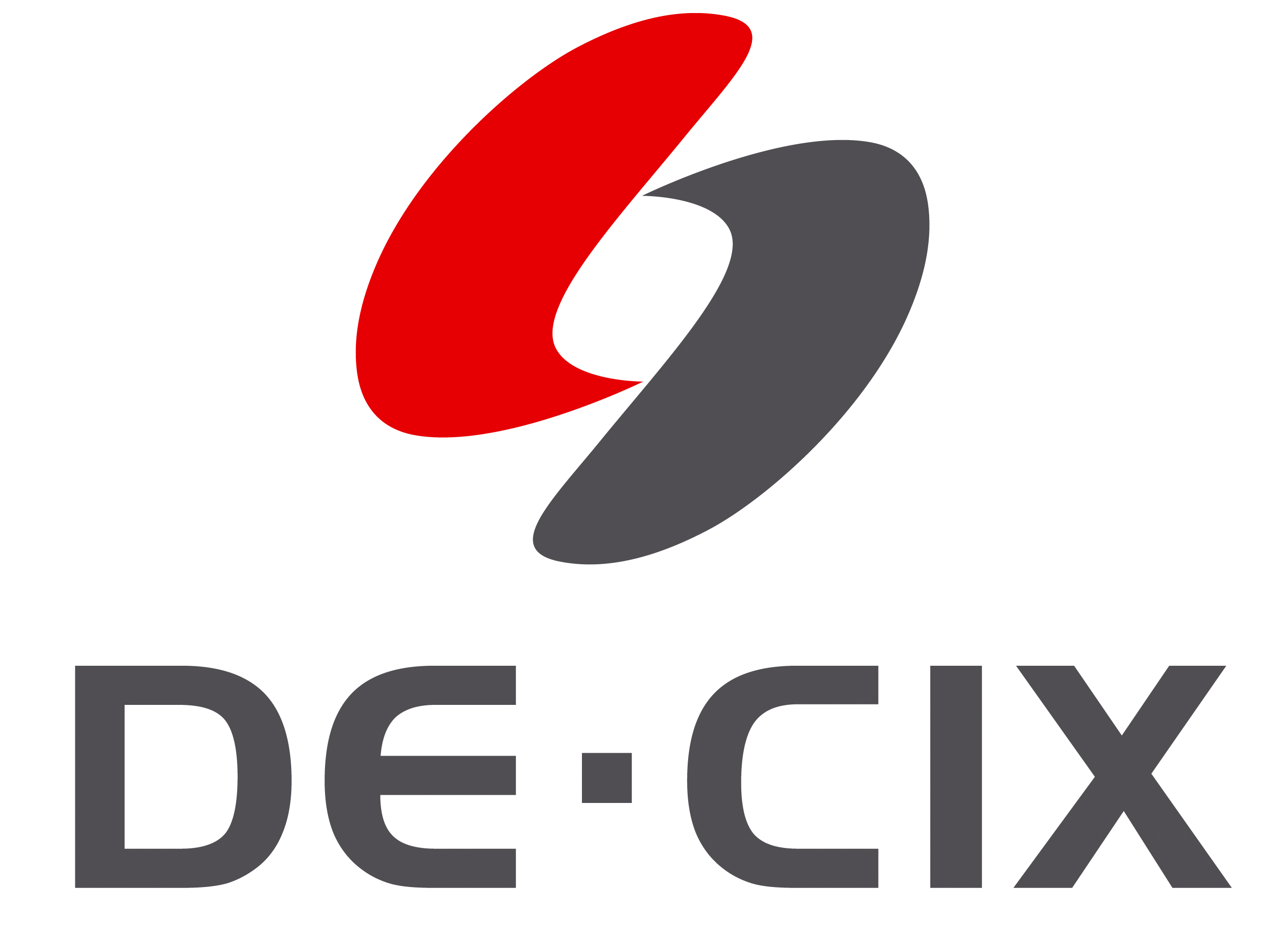Attendees checked in so far: 493
Despite many confessions of post-party sleepiness, Wednesday kicked off in full force with the working group sessions. Here are the day’s highlights:

Address Policy Working Group – Sessions I and II:
- Nick Hilliard presented on the (now withdrawn) proposal to remove the multi-homing requirement to receive an AS Number and the working group agreed on an approach for a new draft proposal as well as a formal statement to the IETF that more work is needed to resolve outstanding issues with 32-bit ASNs
- The working group discussed Erik Bais’s proposal to unify all of the transfer policies into one new transfer policy document
- There was further discussion of Radu-Adrian Feurdean’s and Elvis Velea’s proposal to allow LIRs additional allocations from the last /8; with no more agreement emerging during the session than on the mailing list, it was decided that the WG will likely not reach consensus with the wording as it currently stands and Radu-Adrian said he would work on one more version of the proposal with the WG’s feedback
- Ciprian Nica outlined the historical reasons behind Romania becoming the top exporter of IPv4 addresses via the transfer market
- Ingrid Wijte gave a report from RIPE NCC Registration Services and highlighted the increase in some LIRs asking End Users to pay increased fees to continue using their resources or to purchase them outright; however, it was agreed that there was little the WG or the RIPE NCC could do in these cases

More than 250 participants have already taken the RIPE NCC Academy Challenge
Connect Working Group:
- The working group agreed to conclude work on the “Working With CDNs” BCOP
- Emile Aben presented his research on the paths that traffic takes and whether it stays in or goes out of country, highlighting some interesting examples in Romania, Sweden, France, Argentina and Chile
- Martin Levy presented a short overview of one of the tools created during the RIPE Atlas hackathon that took place before RIPE 71 called ASN Tryst, an ASN to ASN interconnect viewer
- Thomas King presented more details on traffic volume dependencies between IXPs
MAT Working Group:
- Dario Rossi explained how he’s measuring the effect of carrier-grade NAT on web traffic and performance
- Brian Trammel shed some light on Internet path transparency and showed that 0.5% of the Alexa top one million sites refuse to connect with ECN (Explicit Congestion Notification), although this is saved by fallback
- Vesna Manojlovic asked for feedback about how the RIPE Atlas team should implement WiFi measurements; there’s a poll available on RIPE Labs that she invited everyone to take
- Sascha Bleidner, the winner of the RIPE Atlas hackathon that took place the weekend before RIPE 71, presented his team’s winning traceroute tool for comparing your own path and latency to your (geographical) neighbour’s
IPv6 Working Group:

Benedikt Stockebrand’s slide, “IPv6 for managers”, was popular on Twitter
- Benedikt Stockebrand gave an in-depth look at IPv6 from the enterprise perspective, outlining common problems that go beyond the purely technical aspects
- The session included a number of practical lightning talks about vulnerability detection, deployment tooling and BCOPs
- There was an open mic discussion on how to move forward with the IPv6-only network during RIPE Meetings; making sure the service is stable and supported were considered the most important goals
RIPE NCC Services Working Group:
- Axel Pawlik gave an update on the RIPE NCC’s actions and outlook, noting some focal points for 2016 that include maintaining a strong registry, enhancing RIR accountability ahead of the IANA stewardship transition, expanding outreach throughout the RIPE NCC service region, and providing enhanced statistics and analysis
- Alex Band explained how several services have been streamlined, including the membership sign-up process, resource requests, the RIPE Database interface, and registry changes
- A proposal for a capital endowment fund to support the IETF generated a lively discussion
With no pre-planned social on Wednesday night, attendees headed out into the Bucharest night in search of sarmale, pălinca and a good time with friends and colleagues.










